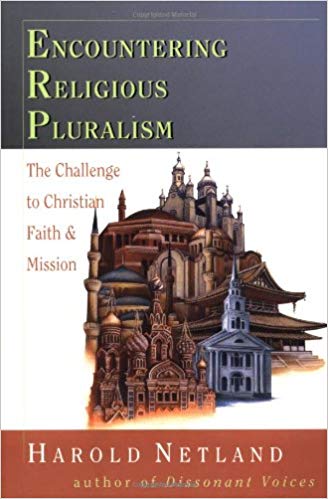A Book Review from Books At a Glance
By Steve West
Perhaps the best thing that can be said about Encountering Religious Pluralism is that, nearly twenty years after publication, it is still an incisive and thoughtful book on a topic that is of tremendous contemporary importance. Netland’s work goes far beyond a presentation and critique of the triad of exclusivism, inclusivism, and pluralism. He covers a wide range of theological, apologetic, philosophical, historical, and cultural issues. Although the breadth of his material requires him to provide summaries and sweeping surveys, he is not lacking in nuance. In fact, when Netland deals with the subject areas in which I’m most familiar, I found myself duly impressed with his handling of the topics. Even more can be said: I wasn’t only impressed, I sometimes found myself picking up nuances I hadn’t fully grasped before. For example, his treatment of the relationship between modernism, the Enlightenment, and postmodernism provided some insights which most evangelical work has missed. In his section on Reformed epistemology and Alvin Plantinga, as I was reading I thought that he might have misunderstood the model because he hadn’t mentioned Plantinga’s work on warrant. Just a page or two farther on, however, Netland provided the discussion I was looking for: He had been presenting Reformed epistemology in its chronological development, starting with the seminal work in the 1980s and ending up with the issue of warrant that Plantinga presented in 2000 (in Warranted Christian Belief). Although hardly anyone will agree with all of Netland’s conclusions and positions over such an enormous range of issues (e.g. many evangelical thinkers will not subscribe to a cumulative case apologetic methodology), Netland’s thoughtfulness and understanding of the material he covers is exemplary.
One of the strengths of this work is that Netland provides a wider framework in which to examine particular issues. Netland does more than simply provide critiques of the thinkers and positions with which he disagrees (although his interaction with John Hick’s pluralism is extremely valuable). He lays down foundation blocks upon which to begin building an evangelical theology of religions. As both Hick and Netland understand, if Jesus Christ is ontologically the Son of God incarnate, then he is unique and Christianity is uniquely a revelation from God. With charity but firm resolve, Netland insists that Christians must not compromise the centrality and importance of the incarnate Christ. Working from a confessionally orthodox perspective, Netland applies logic, philosophy, and theology to determine if pluralism is a cogent position. In his estimation, the philosophy of religious pluralism is incoherent. While maintaining that the biblical data necessitates missions and evangelism, he is willing to leave open the possibility that God might save some who have never explicitly heard of Jesus Christ. He mentions this possibility cautiously but puts the focus on what we know from the Scriptures, which is that we are to take the gospel to the nations, and that everyone who calls on the name of Jesus will be saved.
The issues of religious pluralism and the relationship between God, Christ, Christianity, and other religions is not diminishing in either importance or social interest. Pastors, professors, missionaries, university students, and serious readers would do well to read Encountering Religious Pluralism. In the providence of God, a week or two before reading this book I received an invitation to speak at a secular college on the topic of the Uniqueness of Jesus. While reading Netland’s book, I was able to identify some points that will be extremely helpful for that upcoming lecture. Netland’s book is both informed theoretically and useful practically. It is worth the time to read it with care. As time goes on, globalization and exposure to cultural and religious diversity is going to continue to increase. This can rarely be said about a book that deals with contemporary issues, but Encountering Religious Pluralism is likely to be more relevant for the church in the foreseeable future than it was when it was published almost two decades back.
Steve West is Lead Pastor at Crestwicke Baptist Church in Guelph, Ontario, and Adjunct Professor of Apologetics at Toronto Baptist Seminary.
